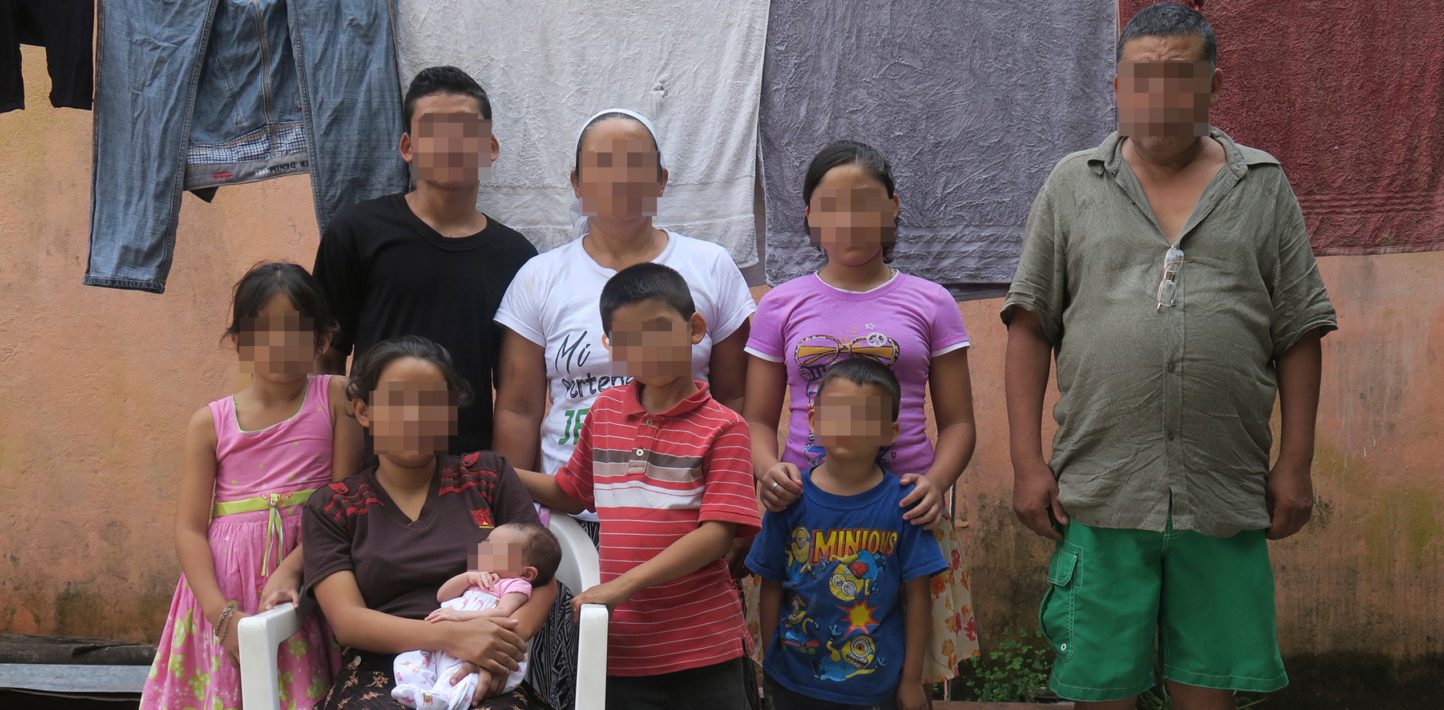Emilia* describes how she brought her family to Mexico after her brother and two of her sons were murdered in El Salvador, their home country. Of the thousands of people fleeing to Mexico from Central America, she was one of the lucky ones. She requested asylum and Mexico gave her protection and the right to remain in the country. Most are not so lucky.
While Donald Trump has captured the world’s attention with his controversial plans to build a wall on the southern border of the United States, the Mexican authorities are working hard, but discreetly, to prevent people fleeing Central America from staying in Mexico.
In 2017, the Mexican government deported 80,353 people for entering the country without the necessary papers or for other irregularities in their migration status. In many cases the deportations violated not only Mexican law, but also international law, and put the lives of deportees at risk.
It is important to understand what the experience of deportation really means for people and the human stories behind these figures.
I met Emilia in November 2016 on the border between Mexico and Guatemala. She was living in a hotel on the border in a tiny room she shared with her husband, her six children and her baby granddaughter. Despite the uncomfortable and overcrowded living conditions, she was happy that she had managed to escape from their very dangerous situation in El Salvador; she was just grateful to be somewhere safe.
Both of her sons who were killed were in their teens and worked as bus conductors, not on the face of it a dangerous job. But in El Salvador, it is a job that can cost you your life because of the network of control and extortion run by powerful gangs (maras) in the transport industry.
Emilia’s story is the story of thousands of people fleeing mainly from El Salvador and Honduras, which are among the most violent countries on earth.
International organizations and UN agencies estimate that of the approximately 500,000 people who cross the southern border of Mexico each year, up to half may be in need of international protection.
But thousands of them do not know their rights and those who do speak up are ignored. Although they have the right to request asylum in Mexico, many people are deported by the Mexican state without taking into account the dangers they face. Known as “forcible return” or refoulement, this practice is illegal under international and Mexican law.
During 2017, Amnesty International carried out a study involving 500 people from Central America in Mexico. The statements of 120 of those questioned provided strong evidence of forcible return.
One man who had travelled to Mexico to seek asylum after receiving death threats in Honduras told us that he had cried in desperation to try to stop his deportation. He said that the officials did not listen to him or inform him of his right to submit a request for asylum; they simply returned him to his country.
In addition, during our research we received numerous statements from people who said they were pressured to sign deportation forms against their will. Likewise, of the 297 people who told us that they were detained by the National Migration Institute, 75% said they have not been informed of their right to request asylum in Mexico.
Each person subject to a deportation order has a series of rights under international law. These include the right to legal assistance, to be heard by a competent authority and to have an opportunity to challenge their deportation. However, for thousands of people in Central America, these rights simply do not exist.
Some 94% of the people deported by Mexico in 2017 came from El Salvador, Guatemala or Honduras. Our research indicates that most did not have an opportunity to question their deportation and were simply sent back to their country without any further examination of their situation.
It is time for the Mexican authorities, in particular judicial bodies, to initiate independent investigations into officials who break the law and carry out these illegal deportations; where there is sufficient admissible evidence against them, they should be brought to justice in fair trials.
The lives and safety of thousands of people are at risk and Mexico cannot continue to ignore them.
*Names have been changed to protect people’s identity.
This article was originally published in spanish by IPS


